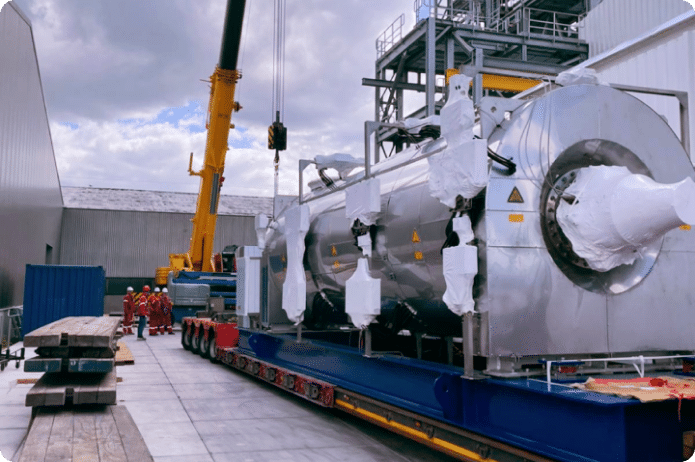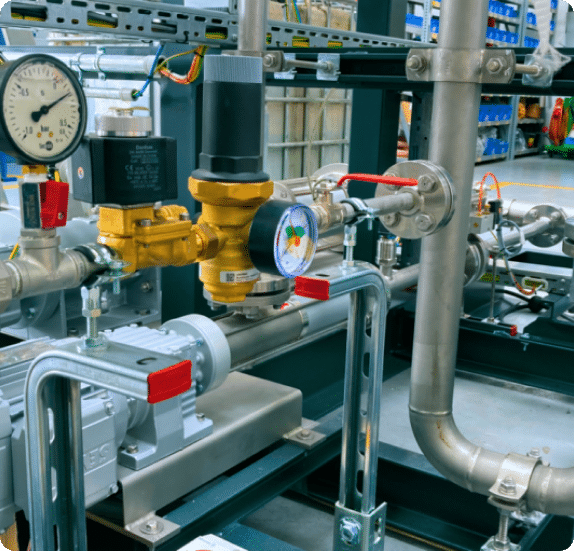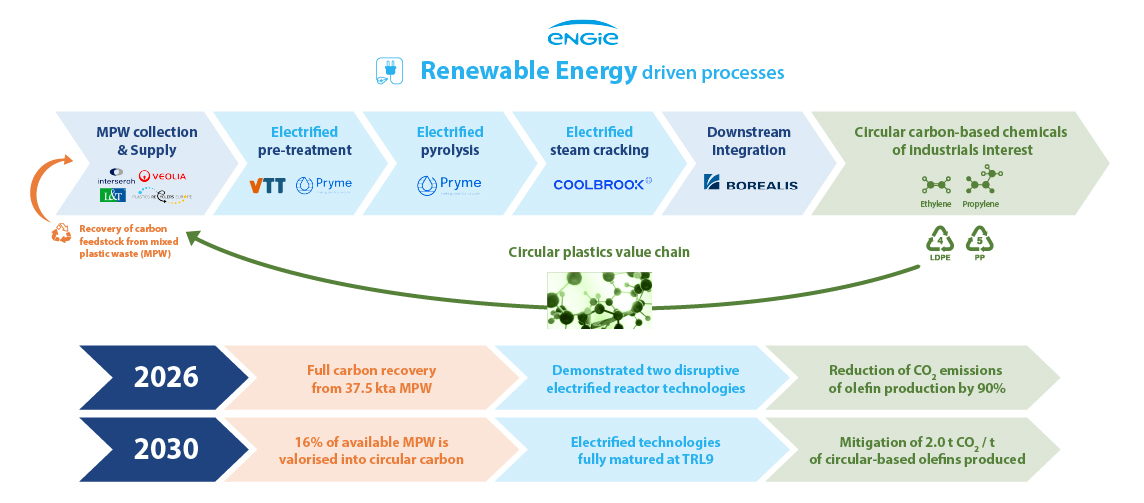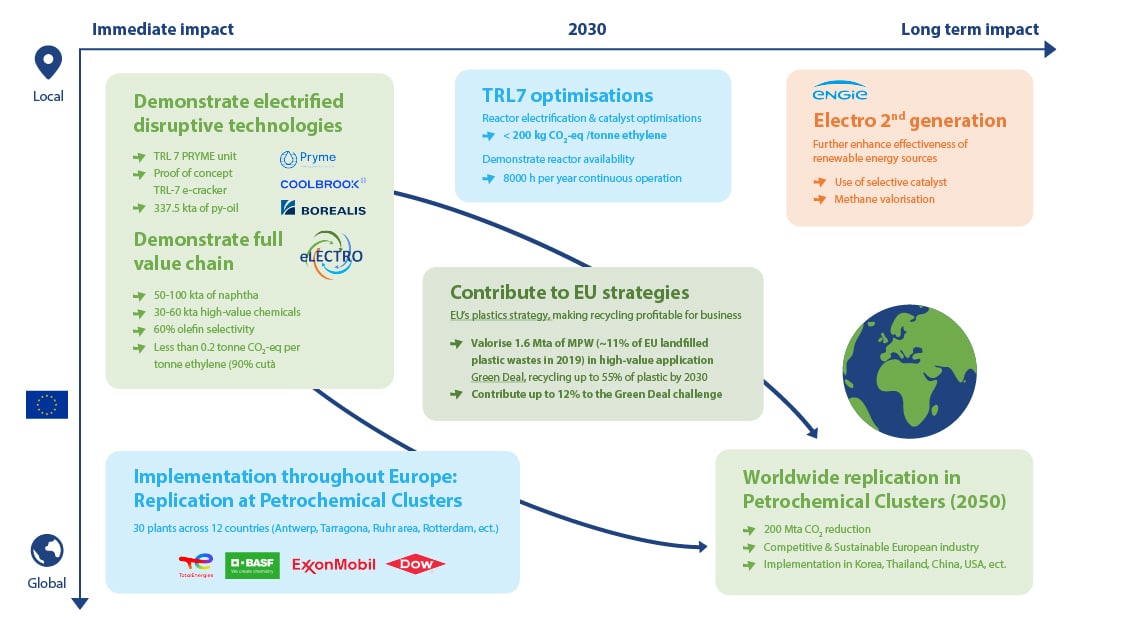Plastic waste streams recycled into olefins
Less than 10 % of plastic is recycled. The rest ends up in landfills or is incinerated. In this context, the EU-funded ELECTRO project will demonstrate new technology that connects the waste and petrochemical industries to provide a sustainable and scalable circular solution with a low carbon footprint for olefin and polyolefin production.
ELECTRO will prioritise plastic waste streams by combining an innovative modular extruder for the optimal pre-treatment of plastic waste with an electrically heated reactor for the catalytic pyrolysis of plastic waste. The main product, plastic waste pyrolysis oil, will be used as a feed for steam crackers. The project will test the technology using waste streams from the Republics of Korea and Indonesia.

Objectives

The overall objective of ELECTRO is to demonstrate a revolutionary technology concept that links the waste and petrochemical industry and provides them with a sustainable, low GHG footprint and scalable circular solution for olefin and polyolefin production.
The priority for ELECTRO is the plastic waste streams that are currently not recycled but rather either incinerated or dumped to landfill: examples are multilayer plastics, mixed PE/PP/PS, and waste PS.
An innovative modular extruder for optimal pre-treatment of plastic waste will be combined with an electrically heated reactor for the catalytic pyrolysis of plastic waste at TRL 7.
- The main product, plastic waste pyrolysis oil, will be used as a feed for steam crackers.
-
Steam cracking will be electrified in the RotoDynamic Reactor (RDR), the second novel reactor technology to be demonstrated at TRL 7 in ELECTRO.
-
In the RDR, the need to transfer heat from fired heaters to a reactant gas flowing in tubular coils is eliminated. RDR's high-velocity rotor blades create thermal energy to heat the reactant gas directly – quickly and much more efficiently.
-
And so, the RDR has a substantially higher selectivity towards light olefins and improved process efficiency.
- The light olefins will be further processed into PE and PP, demonstrating the technical feasibility of chemical recycling and the use of plastic waste as a circular carbon feed.
This scalable concept will enable strong industrial symbiosis, with the initial LCA showing an 90% GHG reduction compared to today’s best available technology (BAT). Given the amount of plastic waste that can be converted, and the market demand for the compounds produced, the impact of ELECTRO will be profound.
To further extend the impact of ELECTRO, the global replicability and economic viability of the proposed concept will be demonstrated using waste streams from the Republic of Korea and Indonesia, and a thorough programme will be implemented to train the next generation of waste management engineers and workers.
Four ambitions
Valorise a wide variety & large volumes of unsorted plastic
(> 50 kta plant size) by connecting a two-step extrusion pre-treatment to electrified conversion of high-purity py-oils
High value
olefin
(ethylene and polyethylene)
production from full range
pyrolysis oil
Enabling
electrification
100% utilization of Renewable
Energy Sources (RES)
Up to 90% reduction
of GHG emissions
in the overall lifecycle
of polyolefins



